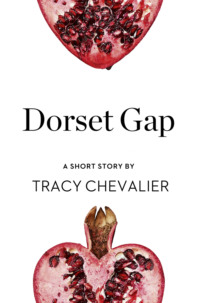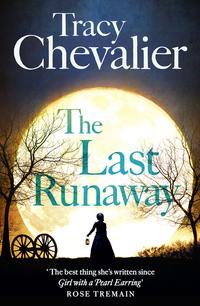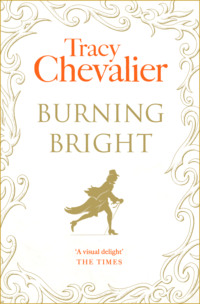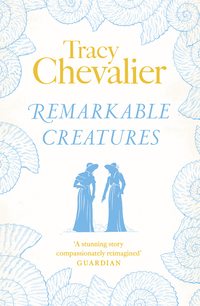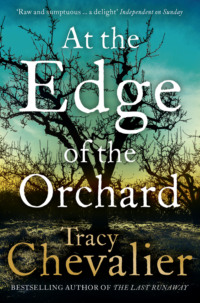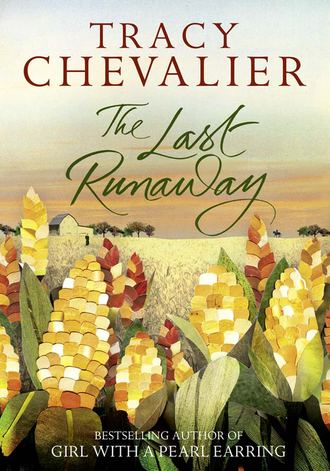
Полная версия
The Last Runaway
‘Thee did not get Grace’s letter? She wrote the moment I decided to come. She sent it immediately – within a day.’ Honor kept adding information, as if by saying enough, the letter would appear.
‘Honor, letters do not always arrive, or they arrive late – sometimes later than the person they announce. And by the time the letter arrives, the news is months old. Thee has written to thy parents about Grace, yes?’
‘Of course.’
‘They will not know of her death for six weeks at the earliest. In the meantime thee will receive letters still asking after her. Thee must be prepared for that, upsetting as it is. The gap between letters can be disturbing. Things change before those affected are fully aware.’
Honor was only half listening, for threaded through his words was the sound she had been expecting since leaving Wellington: the uneven hoofbeats of Donovan’s horse approaching from behind.
He drew up alongside them, smelling of whisky and stale smoke. ‘Honor Bright,’ he said, ‘you didn’t think you could leave town without a goodbye, did you? That wouldn’t be polite, after all. Wouldn’t be friendly.’
Adam Cox pulled on the reins to stop the wagon. ‘Hello, friend. Thee knows Honor?’
‘This is Mr Donovan, Adam,’ Honor broke in. ‘I met him on the road to Wellington.’ She did not add that he was Belle’s brother: that would not help Adam’s opinion of the milliner.
‘I see. I thank thee for any kindness thee has showed Honor during this difficult time.’
Donovan chuckled. ‘Oh, Honor’s been quite the fixture in town, ain’t you, darlin’?’
Adam frowned at the coarse familiarity. However, he knew no other way to be than honest. ‘I am taking her to live in Faithwell. If thee has finished, we will continue.’ He held up the reins expectantly.
‘What, you gonna marry her now the sister’s gone?’
Honor and Adam flinched and leaned away from each other. Honor felt physically ill.
‘I have a responsibility to look after Honor,’ Adam said. ‘She is like a sister to me, and will live with my sister-in-law and me as family.’
Donovan raised his eyebrows. ‘Two sisters-in-law and no wife? Sounds cozy for you.’
‘That’s enough, Donovan.’ Honor’s sharp tone was almost as surprising as her dropping of ‘Mr’. Adam blinked.
‘Ah, got your claws out! All right, all right, my apologies.’ Donovan half bowed from his saddle, then dismounted. ‘Now, I’ll just have a look in your wagon. Down you get.’
‘What reason could thee have to search our things?’ Adam demanded, the colour rising in his face. ‘We have nothing to conceal.’
‘Adam, allow him,’ Honor whispered as she climbed down. ‘It is easier that way.’
Adam remained on the seat. ‘No man has the right to search another’s possessions without cause.’
The violence when it came was so swift Honor caught her breath. One moment Adam was sitting hunched but defiant on the seat of the wagon; the next, he was lying in the dust of the road, crying out and holding his wrist while blood spurted from his nose. Honor ran and knelt by him, holding his head in her lap and mopping the blood with a handkerchief.
In the meantime, Donovan had opened her trunk once again, pawing through the contents and scattering them about on the wagon bed; he did not remark on the signature quilt. Then he lifted the seat they had been perched on and rummaged about. Satisfied at last, he jumped down and stood over them. ‘Where’s the nigger, Honor? You know you can’t lie to me, Quaker gal.’
Honor looked up at him. ‘I do not know,’ she was able to say honestly.
Donovan held her gaze for a long moment. Though weary from his Saturday night carousing, his eyes were still lit with interest, and Honor found them mesmerising, for in the clear brown were little flecks of black like pieces of bark. He was still wearing her key under his shirt – she could see its outline.
‘All right. Don’t know why, but I believe you. Don’t you ever lie to me, though. I’m gonna keep my eye on you. I’ll be paying you a visit over in Faithwell soon.’ He swung up on to his bay horse. Turning its head back towards Wellington, he paused. ‘My sister’s bonnet suits you, Honor Bright. Them colours are from a blanket we had when we was little.’ He clucked his tongue and the horse sprang away into a gallop.
Honor wished he would not tell her such things.
In the distance another wagon was coming. Honor helped Adam to his feet so that he would not be further shamed lying in the dirt in front of strangers. He clutched at his wrist.
‘Break or sprain?’ she asked.
‘Sprain, I think, thanks be to God. It just needs binding.’ Adam shook his head at the mess of Honor’s things in the wagon. ‘What did he think he would find? He knows we won’t have any liquor or tobacco, or indeed anything of value.’ He turned his bewildered eyes on Honor, who had retrieved his hat from the side of the road and was dusting it off.
She handed it to him. ‘He is looking for a runaway slave.’
Adam stared at her until he had to move to make way for the approaching wagon. He said nothing until they were seated again, his wrist bound with one of Honor’s neck cloths, and heading once more towards Faithwell. Then he cleared his throat. ‘It seems thee is quickly learning the ways of Americans.’ He did not sound pleased.
Faithwell, Ohio
6th Month 5th 1850
Dear Mother and Father,
It has been a very long journey from Bridport to Faithwell. The best part of my arrival was not lying down in a bed I knew I would not have to leave the next day, but seeing your letter awaiting me. Adam Cox told me it has been here two weeks. How can it have arrived so long before me when it had to make the same journey? I cried when I saw thy hand, Mother. Even though it was written just a week after I left, I relished every bit of news, because it made me feel I was still at home, taking part in all the daily events of the community. I had to remind myself by looking at the date of the letter that thy words and the things thee describes are two months old. Such a delay is so disorienting.
I am sorry to have to tell you that Matthew Cox has passed: the consumption he suffered from overtook him four weeks ago. This means the Faithwell household I have joined is now very different from what was anticipated. Instead of two married couples and me, there are just three of us, with tenuous ties to one another. It is awkward, though it is early days yet and I hope to feel more settled eventually, rather than a visitor, as I do now. Adam and Abigail, Matthew’s widow, have been welcoming. But Grace’s death has been a great shock to Adam, who of course had been looking forward to marrying and settling his wife into a new life in Ohio. My appearance was also a surprise, for the letter informing him that I had decided to accompany Grace to America never arrived.
I often find myself thinking of how Grace would have coped, how she would have smoothed the rough edges of the circumstances with her laughter and good humour. I try to emulate her, but it is not easy.
Adam’s house in Faithwell – or Abigail’s house, perhaps I should say, for she owned it with Matthew – is so different from what I am used to. I feel when I am in it as if the air around me has shifted and is not the same air I breathed and moved in back in England, but is some other substance. Can a building do such a thing? It is a new house, built about three years ago, of rough pine boards that smell of resin. The wood makes me think of a doll’s house: it lacks the solidity of stone that made our own home on East Street feel so safe. The house creaks constantly, with the wood responding to the wind and the moisture in the air – it is very humid here, and they say it will get worse later in the summer. Apart from my bedroom it is spacious, for one thing America has is much land on which to build. There are two floors, and everyone knows when others go from one to the other, as the boards squeak so. The downstairs comprises a parlour, kitchen and what Americans call the sick room – a bedroom off the kitchen where whoever is ill at the time stays to be looked after. Apparently Americans get fever so often that they need such a room set aside for them – which is troubling, given what I have just witnessed with Grace.
There are three bedrooms upstairs: the largest, which Abigail would have shared with her husband, a medium-sized that Adam was expecting to share with Grace, and a tiny room that would have been for the baby if there were one. They have put me there, for now; the arrangement feels temporary, though what would be more permanent, I cannot say. Although there is room for little other than a bed, I do not mind. When I shut the door it is mine. The furnishings are adequate, though, as in many other American houses where I have stayed, they too have a temporary feel about them, as if they have been knocked together until there is time to build something more permanent. I always sit carefully in chairs, for fear they may break. The table legs often have splinters because they have not been properly sanded and finished. They are mostly made of maple or ash, which makes me miss the timelessness of our oak furniture.
The kitchen is not so different in principle from that on East Street: there is a hearth, a range, a long table and chairs, a sideboard for crockery and pots, a larder – called a pantry here – for storage. Yet the feeling is entirely different from the East Street kitchen. Partly it is that Abigail is not so well organised as thee, Mother. She does not seem to have ‘a place for everything, and everything in its place’, as thee taught me. She stacks wood haphazardly so that it does not dry out, leaves the broom blocking the slops bucket rather than out of the way in the corner, doesn’t wipe up crumbs and so attracts mice, leaves dishes in a jumble on the sideboard rather neatly than stacked. Then too, the range and fireplace take wood instead of coal, so the kitchen smells of wood smoke rather than the deeper earthiness of burning coal. We don’t have to clean up coal dust, but the wood ash can be just as trying, especially when Abigail is clumsy.
It is unfortunate that Abigail and I did not get off to a good start. The first meal she served on my arrival was a steak pie: the meat was tough and the pastry hard. I said nothing, of course, and chewed away at it as best I could, but Abigail was embarrassed – and was made more so by giving me sour milk the next morning. I am hoping to be helpful to her, using gentle persuasion over time.
I have ventured out into town a little – though ‘town’ is perhaps an ambitious word for a row of buildings along a rutted track. Bridport must be a hundred times its size. There is a general store – what we would call a chandler – a smithy, the Meeting House, and ten houses, with farms in the surrounding fields. The community comprises some fifteen families, most of whom moved from North Carolina to get away from the slavery that is engrained in society there. I have not yet been to Meeting here, but the people I have met are friendly, though absorbed in their own concerns, as many Americans I have met seem to be. They do not practise the art of conversation in quite the way the English do, but are straightforward to the point of bluntness. Perhaps this will change when I have got to know the community better.
Beyond us the road extends into forest, except where farms have been hacked out of the trees. I had no idea before coming to America just how hard it is to create farmland out of woods. There are stumps everywhere. England is very ordered, with the feeling that God has put trees in their place, and meadows in theirs, and that the fields have always been there rather than needing to be created. I look at the woods here from the window of my little room and it feels as if they are creeping towards the town, and axes will only temporarily keep them back. You know I have always loved trees, but here they are so overwhelmingly abundant that they feel threatening rather than welcoming.
The general store is sparsely stocked with everyday items. For everything that the general store doesn’t carry, we must go to Oberlin, three miles away. It is much larger, with a population of two thousand as well as a collegiate institute full of students. I have not yet visited, though Adam’s shop is there and he goes most days. Eventually if Faithwell grows large enough he would like to move the shop and sell primarily to Friends, but that may take some time. He has said I can help at the shop when they are busy. I shall be glad to be useful.
Daily life here feels more precarious than it did at home. What Bridport did not have Dorchester or Weymouth was sure to. In the American towns I have visited on my way here, and especially now in Faithwell, I sense that we must be self-sufficient, that we cannot rely on others because they are not always there to be depended upon. Most here grow their own vegetables, as we did, but there is no one selling lettuces should one’s own be eaten by rabbits, as Abigail’s have – here one simply goes without. Many keep their own cow as well. Abigail and Adam do not have a cow, though they do keep chickens; we buy milk and cheese from one of the outlying farms.
I have painted only a very brief portrait of Faithwell. I do not yet have a place here, but with God’s help and the support of Friends, I hope to find one. Please be reassured that I am safely arrived, and am well looked after. I have a bed and enough to eat and kind people about me. God is still with me. For these things I am grateful and have no reason to complain. Yet I think of you all often. Though it is too warm to use it now, I have laid the signature quilt across the end of my bed, and at the beginning and end of the day I touch the signatures of all who are dear to me.
Your loving daughter,
Honor Bright
Appliqué

SHE COULD NOT STAY. Honor knew this within half an hour of arriving at Adam and Abigail’s in Faithwell. It was not the messy kitchen, where dishes left over from dinner were still piled in the sink, or the mud that had not been swept from the hallway, or the inedible supper, or the smokiness from a stove that did not draw well. It was not the mouse droppings she spied in the pantry, or the tatters of cobwebs fluttering in corners, or the tiny room Adam showed her that held no more than a bed, so that her trunk had to sit in the hallway. None of these things would have put her off.
She could not stay because Abigail clearly did not want her there. A tall woman with a wide forehead and dark, staring eyes, she had broad shoulders and thick ankles and wrists. On meeting Honor she hugged her, but there was no warmth in the contact. Defensive after the unpalatable meal she served, she rattled off a list of excuses as she showed Honor around the house. ‘Watch thee doesn’t trip on that rug – it needs tacking down, doesn’t it, Adam?’ ‘This lamp does not usually smoke – I was such in a fluster about thy coming so unexpectedly that I didn’t have time to trim it properly.’ ‘I would have swept, but knew thee and thy trunk would bring in dust I would have to sweep away again.’ Abigail had a way of making the faults of the household seem the result of everyone but herself. Honor began to feel guilty for being there at all.
As a child she had been taught that everyone has a measure of the Light in them, and though the amount can vary, all must try to live up to their measure. It seemed to her now that Abigail’s measure was small, and she was not living up to it. Of course she had recently nursed and then lost a husband, and so could be forgiven for being sombre. But Honor suspected her unfriendliness was part of her nature.
Adam Cox did not try to defend Honor or make her feel welcome, but sank further into himself, sober and quiet – stunned by the double loss of his brother and his fiancée, Honor suspected. Though their courtship had been conducted almost entirely through letters, he must have looked forward to the arrival of a lively, beautiful wife. Now he was stuck with the quiet sister and a difficult sister-in-law.
He only became animated as they were sitting on the front porch after supper and Abigail brought up Honor’s decision to come to Ohio. ‘Adam told me about Grace’s family,’ she said, rocking vigorously in her chair, her hands idle, for it was too dark to sew. ‘He said thee was to be married. Why is thee here instead?’
Adam sat up, as if he had been waiting for Abigail to bring up the difficult topic. ‘Yes, Honor, what happened with Samuel? I thought thee had an understanding with him.’
Honor winced, though she knew eventually this question would have to be answered. She tried to do so in as few words as possible. ‘He met someone else.’
Adam frowned. ‘Who?’
‘A – a woman from Exeter.’
‘But I am from there and know most of the Friends there. Who is it?’
Honor swallowed to ease the tightness in her throat. ‘She is not a Friend.’
‘What, he married out of the faith?’ Abigail practically shouted.
‘Yes.’
‘I assume Bridport Meeting disowned him?’ Adam asked.
‘Yes. He has gone to live in Exeter, and joined the Church of England.’ That was what was hardest: Honor could almost manage the thought of Samuel no longer loving her, but for him willingly to leave the faith that was the very foundation of her life was a blow she did not think she could recover from. That, and the embarrassment in Samuel’s parents’ eyes whenever she ran into them, and the pity in everyone else’s, had made her say yes to Grace’s suggestion to emigrate.
Thinking of this, she found she was gripping her hands in her lap. She took a deep breath and tried to relax her fingers, but her knuckles were still white from being forced to think of Samuel.
Abigail shook her head. ‘That’s just terrible.’ She sounded almost gleeful, but then frowned, perhaps recalling it was those circumstances that brought her this unwelcome guest. Something hard and cruel in her sidelong glance gave Honor the guilty feeling that, once again, she was at fault.
Though it was warm, that night she huddled under the signature quilt in the tiny bedroom, seeking solace.

Later Honor admitted to herself that she had not hidden her dismay at her new home well, and Abigail might easily have taken offence. The ramshackle, frontier nature of the house extended to Faithwell itself. When Adam brought her from Wellington, she’d thought the scattering of houses had been just the announcement of a larger settlement nearby. The next morning she discovered otherwise when she and Abigail went for a walk. Though it was raining and the road in front of the house had turned to mud, Abigail insisted on going out. It was as if she dreaded being alone with Honor – Adam had left early for the Oberlin shop. When Honor suggested they might wait until the rain let up, Abigail frowned and continued putting on her bonnet. ‘I hear it rains all the time in England,’ she countered, tying the ribbon tight under her chin. ‘Thee should be used to it. Thee won’t wear that grey and yellow bonnet, will thee? It’s fancy for Faithwell.’
Honor had already decided to store Belle’s bonnet; she wondered if she would ever find a place to wear it. Grace would have managed to wear it here, she thought.
She followed Abigail along the track, picking through the mud to planks that had been laid alongside for this purpose, though the mud covered them as well. They passed a few houses, similar in construction to Adam and Abigail’s, but no one else was out. The general store was also empty apart from the owner. He greeted her kindly enough, with the sort of open, honest face she was familiar with among Friends back home. The shop itself was small and basic, the space given over primarily to barrels of flour, cane sugar, cornmeal and molasses. There were also a few shelves carrying a jumble of bits and pieces such as candles and bootlaces, a tablet of writing paper, a dishcloth, a hand broom – as if a pedlar had come along and convinced the shopkeeper he needed one of each in case someone asked for it someday.
Honor maintained a strained smile as she looked around, trying to mask what she was thinking: that these barrels and shelves represented the limitations of her new life. A metal pail, a packet of needles, a jar of vinegar: these lone items, sad on their shelves, were all there was to Faithwell. There was no additional room full of tempting sweets or beautiful cloth, no corner to turn with another row of shops on a mud-free street, no duck-egg-blue floorboards. Adam’s letters to Grace had not been lies, exactly, but he had made the town out to be thriving. ‘It is small but growing,’ he had written. ‘I am certain it will flourish.’ Perhaps Honor should have paid more attention to Adam’s use of the future tense.
Back at the house she tried to help Abigail: she washed dishes and scrubbed pots, shook out the oval rag rugs scattered throughout the house, brought in wood for the range and hauled out ash from the stove to dump in the privy – ‘Outhouse,’ she murmured. With every task she asked for instructions so that she would not offend Abigail with different ways of doing things that might imply her hostess was in the wrong. Abigail was the sort of woman who thought that way.
She made her big mistake while sweeping the kitchen and pantry. ‘Does thee have a cat?’ she asked as the mouse droppings accumulated in the pile of sweepings, thinking this gentle suggestion might solve the mouse problem.
Abigail dropped the knife she was using to peel potatoes. ‘No! They make me sneeze.’ She disappeared into the pantry and came back with a jar of red powder, which she tapped into bellows and began blowing into the corners, her movements jerky and accompanied by sighs. Honor tried not to stare, but curiosity overtook her, and she picked up the jar. ‘What is this?’
‘Red pepper. Gets rid of vermin. Doesn’t thee use it in England?’
‘No. We had a cat.’ Honor did not add that their cat, a tortoiseshell called Lizzy, was a good mouser. She used to sit next to Honor while she sewed and purr. The thought of her old cat made her eyes sting, and she turned back to her sweeping so that Abigail would not see her tears.
In the evening when Adam returned, Honor heard Abigail whispering to him out on the porch. She did not try to listen; from the tone she knew what Abigail was saying: She could not stay. But where could she go?

The next afternoon, when Abigail decided they had done enough housework for the day, she settled into the rocker on the front porch with a quilt she was working on and a bowl of new cherries from a tree behind the house. Honor had picked them so the blue jays wouldn’t eat them all. Fetching her sewing box, she joined Abigail. She had not worked on a quilt since being on board the Adventurer
Конец ознакомительного фрагмента.
Текст предоставлен ООО «ЛитРес».
Прочитайте эту книгу целиком, купив полную легальную версию на ЛитРес.
Безопасно оплатить книгу можно банковской картой Visa, MasterCard, Maestro, со счета мобильного телефона, с платежного терминала, в салоне МТС или Связной, через PayPal, WebMoney, Яндекс.Деньги, QIWI Кошелек, бонусными картами или другим удобным Вам способом.


